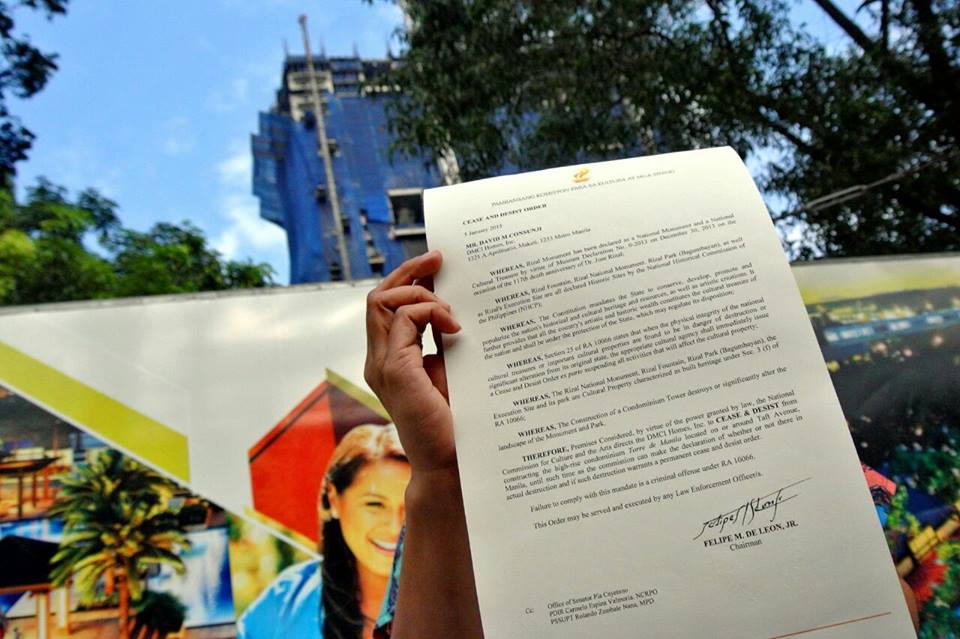Breaking
SC orders NCCA to explain CDO issued vs. Torre De Manila

It’s about time we take culture and heritage protection seriously. Kudos to the National Commission on Culture and the Arts (NCCA). (Caption and photo courtesy of Sen. Pia Cayetano’s Facebook page)” width=”960″ height=”639″ />
A cease-and-desist order (CDO) has been served earlier today (Jan.13) to stop the construction of Torre de Manila. It’s about time we take culture and heritage protection seriously. Kudos to the National Commission on Culture and the Arts (NCCA). (Caption and photo courtesy of Sen. Pia Cayetano’s Facebook page)MANILA — The Supreme Court (SC) en banc on Tuesday ordered the National Commission on Culture and the Arts (NCCA) to explain its issuance of a Cease and Desist Order (CDO) against the construction of condominium building, Torre De Manila, which is being strongly opposed by conservationists for spoiling the background view of the Rizal Monument in Luneta Park, Manila.
In a press conference, SC Public Information Office (PIO) Chief and Spokesman Atty. Theodore O. Te said “the Court noted various legal submissions made in this case, including the various comments made by the respondents and intervenors.”
Te added that the “Court also directed the intervenor-respondent NCCA to explain its issuance of a CDO against the questioned structure within 10 days from notice of resolution.”
The NCCA is the intervenor-respondent in the case filed by the Knights of Rizal (KOR) against the DMCI Homes Incorporated (DMCI).
In the case filed by the KOR, it argued that in the construction of the Torre de Manila, the DMCI violated Republic Act No. 4846, or the “Cultural Properties Preservation and Protection Act”, as well as RA No. 10066, or the “National Cultural Heritage Act of 2009”, which provided protection to the “National Cultural Heritage”.
The KOR further argued that because of the Torre De Manila, the view of the Rizal Monument in Luneta Park will be forever “blocked”, which is considered as a significant landmark or structure in the country.
It added that the construction of the questioned structure also violated the Manila Zoning Ordinance.





















